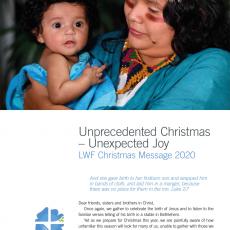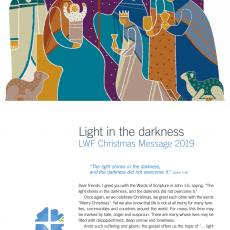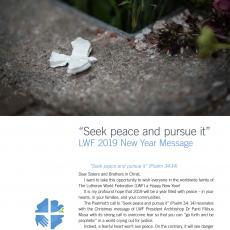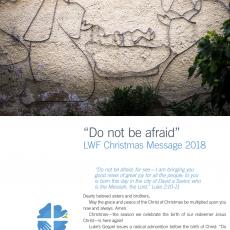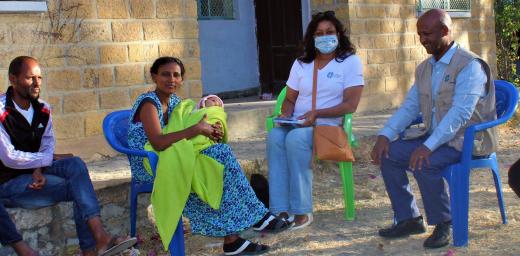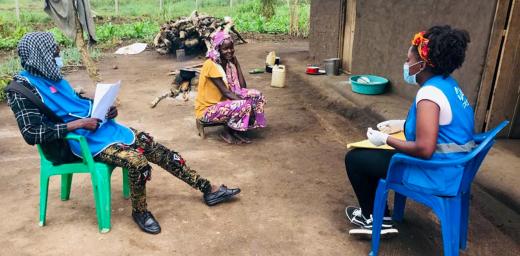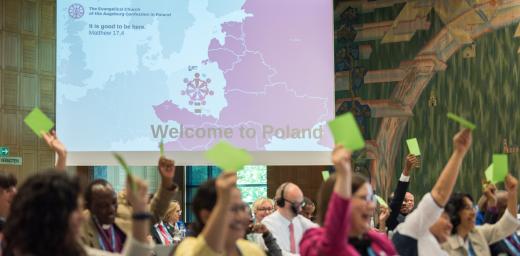LWF Solidarity Visit to Nigeria
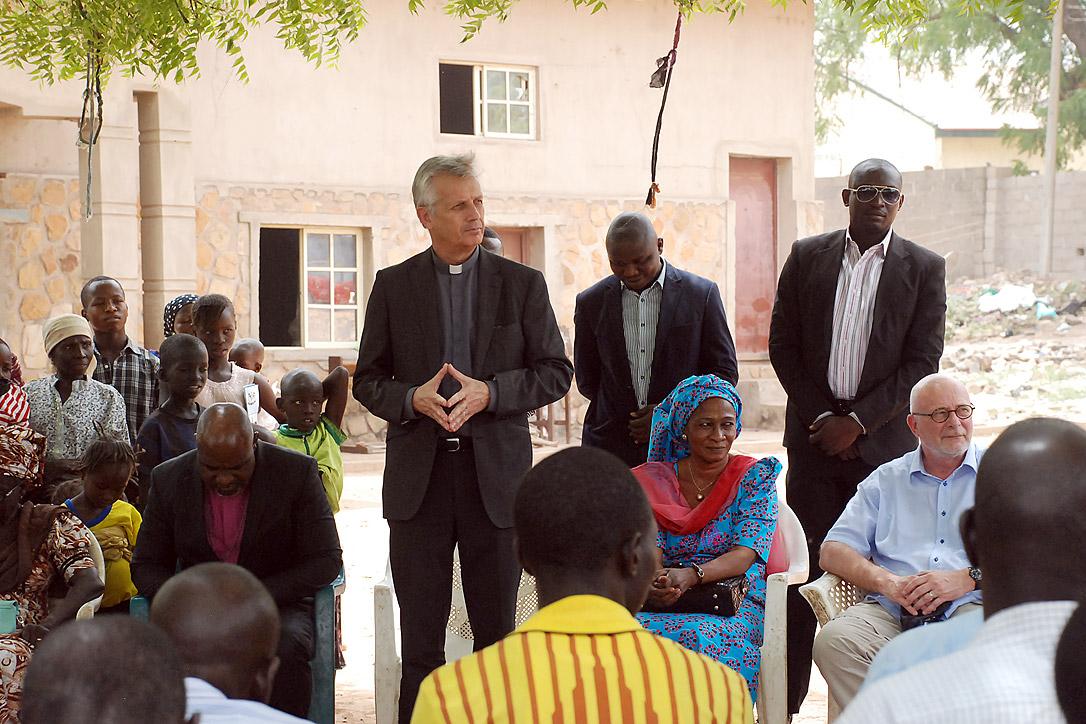
LWF delegation talks to IDPs in North Eastern Nigeria. Photo: Jfaden Multimedia
“You Are Not Forgotten, There Are Many Praying for You” Says General Secretary
(LWI) – The Lutheran World Federation (LWF) General Secretary Rev. Martin Junge has paid a solidarity visit to the LWF member churches in Nigeria. “Solidarity with the people and the churches in Nigeria, our love and concern for them, could no longer only be expressed through phone calls and emails,” General Secretary Junge said returning from the visit from 9-13 March 2015. “The LWF needed to be there, right on the spot, with the church leaders to substantiate that indeed we are in communion with them. When we say it, we mean it”.
Joining the LWF delegation was Pamela Oyieyo, LWF Council member, Carsten Bruhn-Lauritsen ,the Partner Coordinator of Mission Afrika (DK), Rev. Themba Mkhabela (Regional Representative of the Evangelical Lutheran Church of America), Ms Sylvia Raulo (Program Coordinator LWF Department for Mission and Development) and Ms Janet Faden. They were joined by Titi Malik (LWF Council Member) and Hamidja Jean-Claude (from the Lutheran Communion in West Africa, LUCWA).
Following the visit, the LWF plans to assess how it can assist the Nigerian member churches in upholding their vocation in their context. “The Lutheran Church of Christ in Nigeria faces a huge pastoral, diaconal and theological challenge,” Junge said. “Pastoral, because of the wide-spread trauma resulting from violence and the challenge to build trust; diaconal, because of the call to serve the suffering neighbor; theological, because of the importance to define how the church and its members want to understand its ongoing relations with people of other faiths”.
“Intentional Religious Homogenization”
During recent months, the LWF has grown increasingly concerned about the situation in North Eastern Nigeria, where Boko Haram violence has caused death and displacement especially among the Christian population. The LWF has two member churches in Nigeria. The Lutheran Church of Christ in Nigeria (LCCN) is one of them. It is based in the region with headquarters in Numan, Adamawa state. Many LCCN members are hosting large numbers of internally displaced persons in their homes.
The visit of the LWF delegation took place during a period of intense political debate relating to the forthcoming presidential and state elections on 28 March. Nigeria is also currently experiencing intensified military actions by the armies of Nigeria, Chad, Cameroun and Niger to combat Boko Haram.
The situation has worsened since August, when Boko Haram launched a new wave of attacks unprecedented in their magnitude. “I stood in front of an internally displaced person, a woman, who only hours before had lost her 14 months old child because of unhygienic conditions in the improvised refugee camp,” Junge said. “I talked to a woman who lost her father during the three days she and her family of eight children were fleeing from Boko Haram to the South. She couldn’t even bury him”.
Apart from the trauma suffered by those who have been victims and witnessed atrocities and killing, the on-going violence has “severe economic and social consequences,” Junge said. Systematic destruction of Christian churches, and forced conversions are evidence of a dimension of intentional religious homogenisation by Boko Haram, he said.
“The deepest impact is the destruction of the social fabric and trust between different religious communities. In a region with a long tradition of co-existence, even within families, there is now fear and uncertainty about the future of the co-existence”.
Encouraging Signs of Solidarity
The LCCN has been engaged on the diocesan and congregational level, supporting several camps in an informal way. Many LCCN members including pastors, women fellowship groups and individuals have served as host families for refugees. Congregations are holding special collections to support families who are hosting refugees.
“I was encouraged to see how church members have opened their houses to people fleeing from the North. In most cases, they hosted both Christians and Muslims, thus reflecting the reality in many Northern Nigerian families: they include people from both faiths,” General Secretary Junge said. “We saw a church that is committed to serve and to accompany; therefore we believe that there is hope.”
The LWF delegation expressed the communion’s solidarity with the Nigerian member churches and the displaced people they are hosting. Within the LCCN, the situation is also affecting the church and its activities as several churches have been burnt and two dioceses were forced to relocate their headquarters. “I could experience during my visit that the very fact of acknowledging this reality and standing with the LCCN in prayerful solidarity already makes a huge difference. It gives confidence, it gives power, it gives hope. All of that is so much needed now,” said Junge.
The General Secretary also met with internally displaced people. “I want to let you know that you are not forgotten, that you are not forsaken,” he told them. “There are many people praying for you”.


